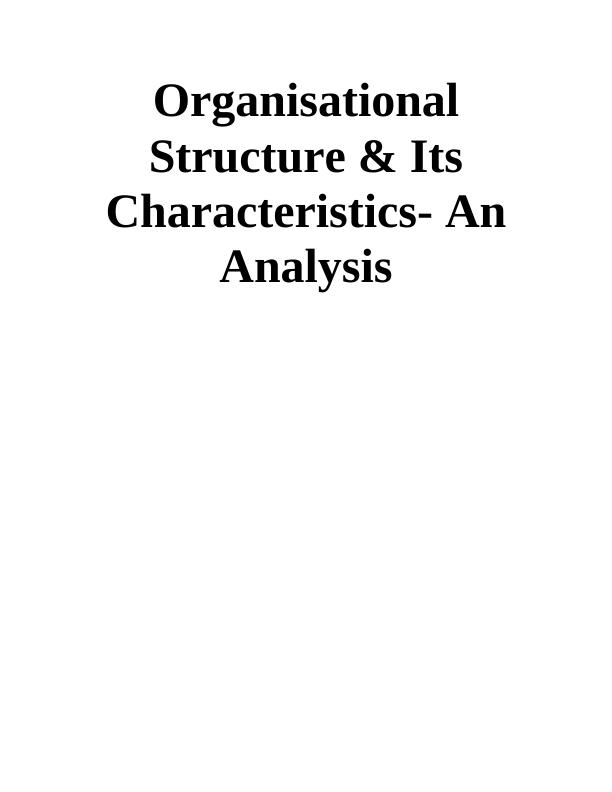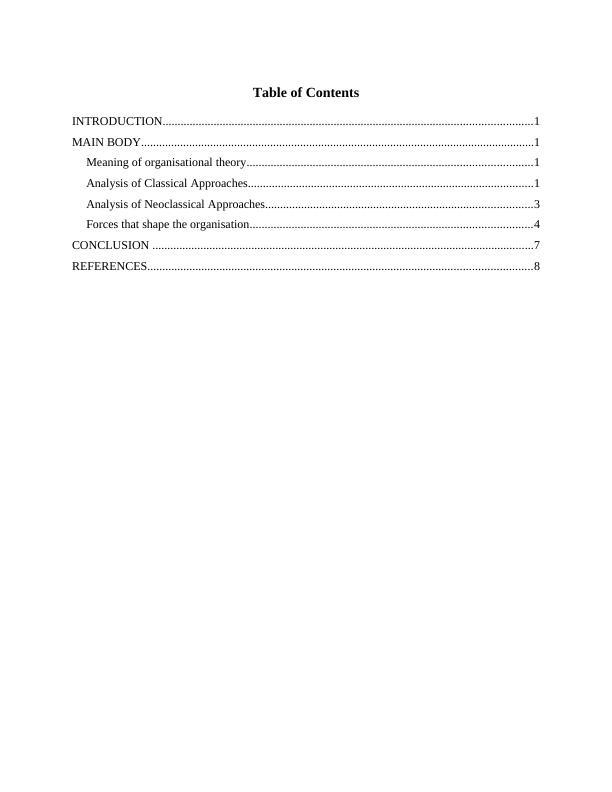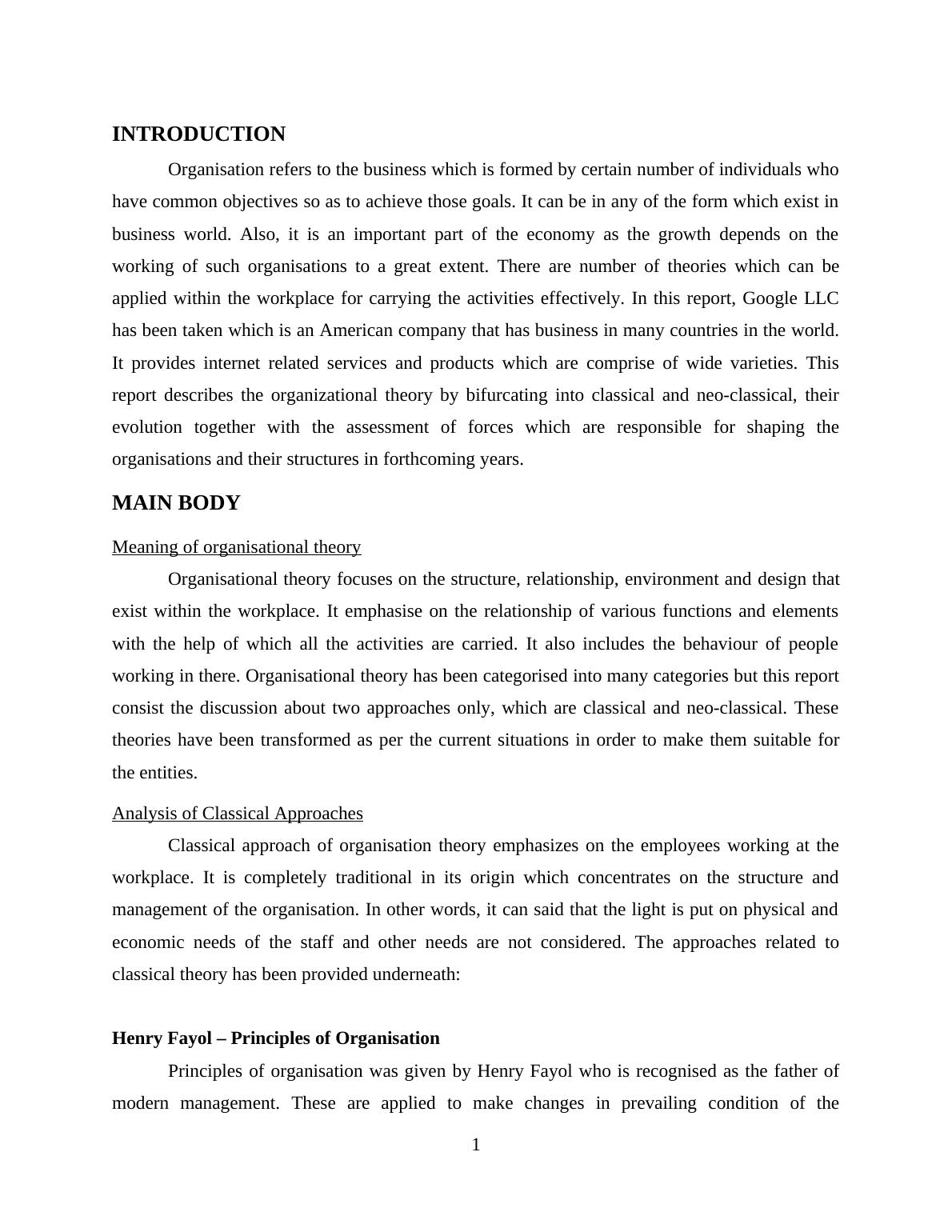Organisational Structure & Its Characteristics- An Analysis
12 Pages2734 Words1 Views
Added on 2023-01-13
About This Document
This report analyzes the meaning of organizational theory, classical and neoclassical approaches, and the forces that shape organizations. It discusses the theories of Henry Fayol, Frederick Taylor, Max Weber, Abraham Maslow, Elton Mayo, and Douglas McGregor. It also explores the importance of customer orientation, culture-excellence approach, Japanese approach, organizational learning, power-politics perspectives, modernist postmodernist approach, and technology in shaping organizations.
Organisational Structure & Its Characteristics- An Analysis
Added on 2023-01-13
ShareRelated Documents
End of preview
Want to access all the pages? Upload your documents or become a member.
Organisation Theory: Analysis of Classical and Neo-classical Approaches
|9
|2485
|61
Organisation Theory
|11
|2983
|40
Organisation Theory: Classical and Neoclassical Approaches and Future Forces Shaping Organisational Structures
|10
|2763
|360
Organisation Theory: Classical and Neo-classical Origins and Forces Shaping Organisational Structures
|10
|2567
|1
Organisation Theory: Classical and Neo-Classical Origins and Future Organisational Structures
|9
|2533
|81
Organisation Theory: Classical and Neoclassical Approaches
|10
|2451
|34




